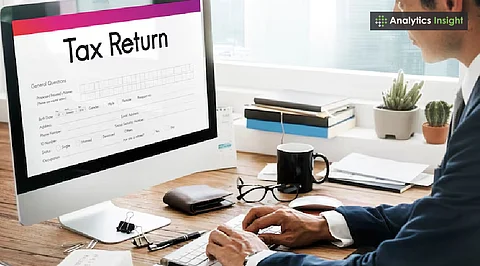

India’s Virtual Digital Asset (VDA) ecosystem has grown dramatically in both size and complexity over the past few years. What was once an informal and poorly understood space is now under close watch by the Indian Income Tax Department and regulators? The taxation of cryptocurrencies and other VDAs is no longer a grey area, it’s a regulated domain with defined tax rules, stringent disclosure requirements, and significant consequences for non-compliance.
I’ve worked with thousands of Investors, traders, HNIs, family offices, exchanges, and Institutions navigating India’s evolving crypto tax landscape. If you are a crypto Investor, high-volume trader, miner, or an NFT flipper, this comprehensive guide is your go-to resource to correctly file your Income Tax Return (ITR) for FY 2024-25 (AY 2025-26).
Under Indian tax law, Virtual Digital Assets (VDAs) is the umbrella term used to define Cryptocurrencies (e.g., Bitcoin, Ethereum, Solana, Dogecoin, etc.), Non-Fungible Tokens (e.g. Bored Ape Yacht Club or Runes), In-game digital assets (e.g., Axies in Axie Infinity) and crypto tokens on blockchains like Ethereum, BSC, Solana, Avalanche, and others.
It’s important to note that the term “VDA” is not restricted to cryptocurrencies. It includes any digitally represented value that uses distributed ledger or blockchain technology and is not considered fiat currency or traditional securities.
Income from virtual digital assets (VDAs) like cryptocurrencies and NFTs is taxed at a flat rate of 30% under Section 115BBH, plus applicable surcharge and 4% cess. This applies regardless of your income slab or holding period.
No set-off or carry-forward of losses is allowed. A loss from one crypto trade cannot be adjusted against gains from another, nor against any other income (like salary or capital gains). You also can’t carry forward crypto losses to future years.
Additionally, no deductions are allowed for expenses such as brokerage, gas fees, or platform charges. Only the cost of acquisition is deductible from the sale value.
Example: If you earn ₹100 profit on one trade and lose ₹100 on another, you still pay approx. ₹31.2 tax on the profit. The loss is ignored for tax purposes.
Under Section 194S of the Income Tax Act, 1% TDS is applicable on every sale of crypto assets. This is deducted by Indian exchanges at the time of the transaction. For P2P trades, the buyer is responsible for deducting and depositing TDS after collecting the seller’s PAN.
If the buyer fails to deduct TDS or file Form 26Q/26QE, it would result in the levy of interest for late payment or non-deduction of TDS, typically between 12% and 18% per annum, or a late fee of Rs.200 per day for delay in filing of TDS returns. If the buyer does not have the PAN of the seller, then the buyer needs to deduct TDS at the rate of 20%.
TDS deducted can be adjusted against your total tax liability when filing your ITR. If excess TDS has been deducted, you can claim a refund.
The applicable ITR form will depend on the sources of income an investor has. However, for Individuals trading in VDA/crypto assets and having business Income, ITR-3 will be the right ITR Form. Need to file ITR-3 and all other Investors without a business Income will need to file ITR-2.
The Income tax return has a section called Schedule VDA for declaring all the trading activity during the year. You should provide a detailed transaction-wise breakup of all trades in the Schedule VDA. Broadly, a taxpayer is required to mention details of buy date, buy value, sale date, and sale value and profit amount in the Schedule VDA section of the ITR.
Note: If you’ve used multiple wallets, blockchains (Solana, Ethereum, BSC), and exchanges (Binance, CoinDCX, Bybit, Coinbase), consolidate all your trades and use tax software like Koinly or consult a CA specializing in Crypto before filing your ITR.
Tax laws around crypto are no longer “emerging”, they’re being enforced. Hundreds of investors have already received notices for misreporting or not reporting crypto trades. And with VDA reporting now embedded in the ITR framework, the margin for error is zero.
My advice will be to stay transparent. File on time. Don’t let ignorance become your liability.
[Disclaimer: The views expressed are solely of the author and Analytics Insight does not necessarily subscribe to it. Analytics Insight shall not be responsible for any damage caused to any damage caused to any person/organization directly or indirectly.]
